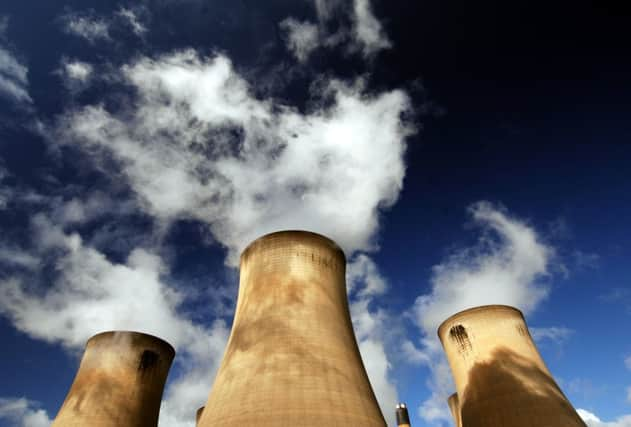Drax considers mothballing of coal-fired units


Drax, which owns one of Europe’s largest coal-fired power plants, was echoing comments made by other owners of coal-fired power stations such as SSE and Engie, who have announced earlier-than-expected closures of loss-making plants.
Drax revealed that it suffered a fall in core earnings last year, as it faced “severe” market deterioration and regulatory challenges. Drax’s shares have fallen following changes in Government policy last year.
Advertisement
Hide AdAdvertisement
Hide AdDuring the year, the Government applied the Climate Change Levy to renewables, and announced a potential timeline for the closure of coal generating plants.
According to Drax, which is based near Selby, the former had a significant negative impact on the company’s 2015 results, reducing EBITDA by an estimated £30m, and the company expects this impact to double in 2016.
A surge in intermittent renewable energy production and cheap gas prices have also harmed the performance of the UK’s coal-fired plants. The Government plans to shut all coal-fired stations by 2025 in a bid to lower carbon emissions.
“We may choose to mothball them, but what we are keen to do is to work with Government and find the right solution,” Drax chief executive Dorothy Thompson said.
Advertisement
Hide AdAdvertisement
Hide AdDrax, which also reported a 26 per cent fall in full-year core earnings to £169m, has already converted two of its coal units to run on biomass, or wood pellets, instead.
It is awaiting a decision by the European Commission on whether it will allow state aid to support Drax’s project to convert a third unit to biomass.
Ms Thompson said Drax wants to continue investing in biomass conversions and hopes to eventually run its entire power plant on renewable energy.
“Now that we have become the leading biomass expert that’s the core focus of where we’re looking to see future strategic options,” she said.
Advertisement
Hide AdAdvertisement
Hide AdIn her review of 2015, Ms Thompson said: “For any business operating in the UK energy market, 2015 was a difficult year.
“For Drax it was especially so. Yet operationally, it was a year of strong progress...
“The scale of these achievements cannot be underestimated, even more so when one recalls that at the start of our biomass journey we had neither a generation nor supply solution.”
Ms Thompson said that Drax had also faced some of the toughest commodity markets that she had ever seen.
Advertisement
Hide AdAdvertisement
Hide AdMs Thompson added: “These were then accompanied by a series of unexpected regulatory announcements, including the removal of the Climate Change Levy exemption, which severely affected the renewables sector and caused many to question the UK Government’s commitment to decarbonisation.”
Andy Koss, chief executive of Drax Power, told The Yorkshire Post that he believed Drax had a “very strong future”.
He added: “We need to invest over a 10, 15 and 20-year horizon. We need policy certainty... To have a flexible and secure system we need to invest now.”
The power producer said it expects conditions this year to remain challenging as power prices have dropped close to 15-year lows.
Advertisement
Hide AdAdvertisement
Hide Ad“We remain optimistic about Drax’s prospects... but the ride is likely to continue to be volatile, driven by sentiment rather than precise figures,” said Angelos Anastasiou, utilities analyst at Whitman Howard.
DOROTHY thompson, the chief executive of Drax, said the group had delivered a strong operational performance, and realised its vision of becoming a predominantly biomass fuelled generator.
She added: “We are clear on the challenges ahead and how we will respond. The fastest, most affordable and safest way to reduce carbon emissions is to further deploy the world leading biomass technology Drax has pioneered to upgrade more of the UK’s existing coal-fired power stations to sustainable biomass.”
Drax saw its pre-tax profits fall from £166m to £59m in 2015. The underlying full year earnings were £46m.